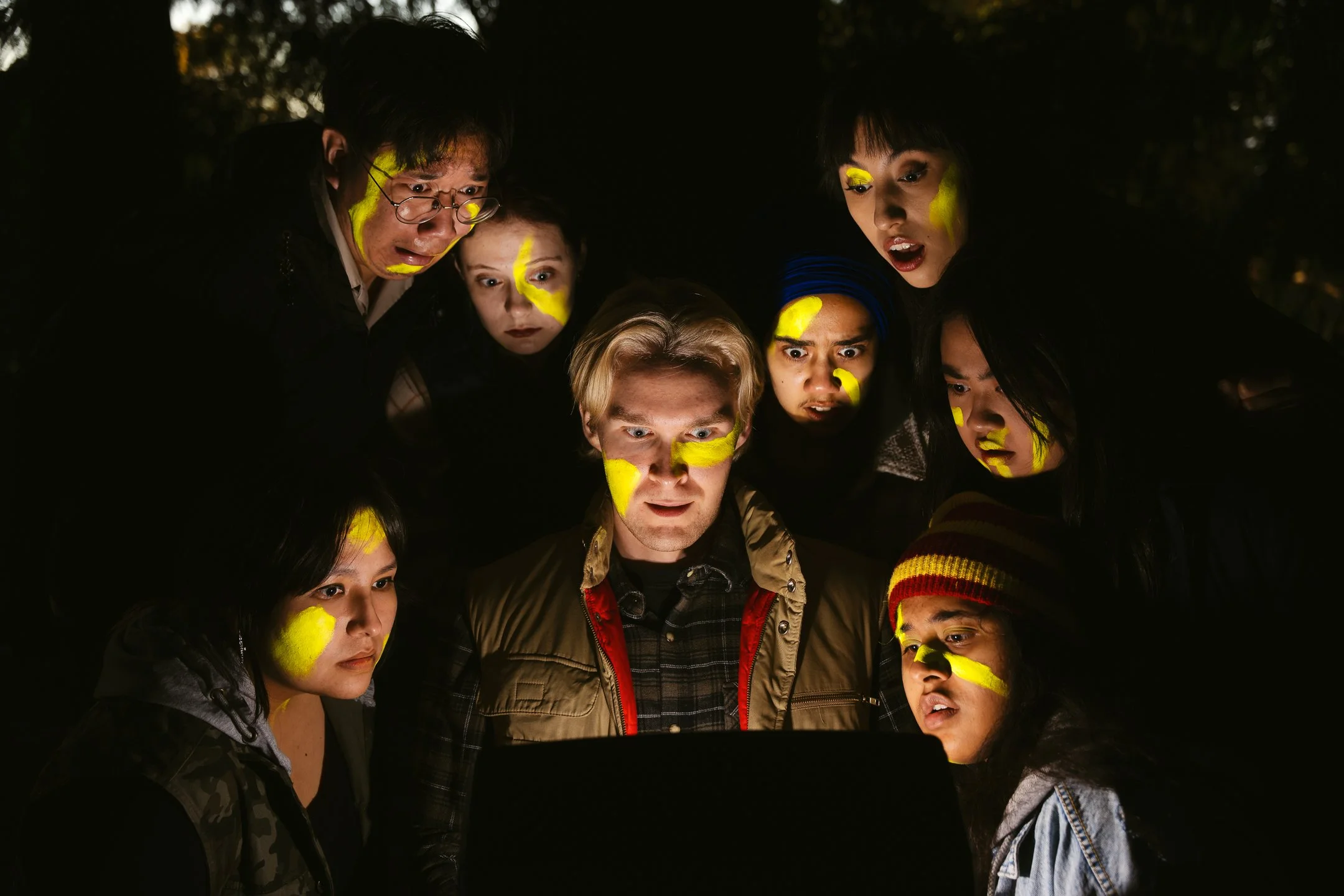Review: Nicolas Sassoon’s ‘Index Avenue Skylight’ at Wil Aballe Art Projects
/Courtesy of Michael Love and Wil Aballe Art Projects
The underground art scene, where so much of the hard work of creative production takes place, can seem strangely disconnected from the white-cube world of fine art. Nicolas Sassoon’s new show at Wil Aballe Art Projects, ‘Index Avenue Skylight’, brings these two halves of the art world together.
The centrepiece of the show, and jumping-off point for the rest of the works, are three large-scale animations played in sequence on two connected monitors. Titled ‘Index’, ‘Avenue’, and ‘Skylight’, the works recreate three underground studio and party spaces of the same names that existed in Vancouver between 2014 and 2016. Technically, the videos are GIF’s, repeating on a 28-frame loop, and they’re full of engrossing details that catch the viewer’s eye as it roves across the digital surface—undulating curtains, an escaping octopus, the slow flicking back and forth of a cat’s tail.
Courtesy of Michael Love and Wil Aballe Art Projects
These works are by far the most representational that Sassoon has created, and it is a testament to the uniqueness of his vision that they remain recognizably his. The abstracted or semi-abstracted forms and looping patterns of his previous work are foundational to these pieces, found in wavering wallpapers and the background of pixelated stars over which the vignettes drift. It is fitting, too, that his choice of subject matter would be something so intensely personal. As Nora O Murchú writes in an accompanying essay, the labour that goes into these places of connection and catharsis is familiar to many city-dwelling creative people. Even though O Murchú lives in Ireland, she found the spaces Sassoon depicts to emit intense familiarity.
With the rest of the installation, Sassoon extends the grungy energy of the video works throughout the space with a combination of lighting, projection, and works on paper. He selected memorable figures and objects from within the works, such as an end-table littered with half-smoked cigarettes and an abandoned iPhone, and reproduced them in neon orange on black paper mounted on high density foam. He then replaced the space’s regular, harsh fluorescent lighting with LED blue lights that pick up the neon orange of the works on paper to create an effect reminiscent of an after-hours rave. A projection on the gallery floor echoes the pixelated digital moirés that are so emblematic of Sassoon’s style.
Courtesy of Michael Love and Wil Aballe Art Projects
There are parallels to be drawn between the works themselves and the spaces they depict - much like digital forms, these underground spaces are temporal, physically short lived and yet immortalized in memory or cyberspace. Indeed, none of these venues exist anymore, at least not in the versions of themselves that Sassoon depicts—he recreates them through the hazy lens of memory and nostalgia, a blur of many particular nights. In talking to Sassoon, there’s a refreshing lack of sadness about the spaces’ demise; he seems to take in stride the fact that these environments’ lives burn short and intense. Like anything that operates outside a capitalist mode of production, they are by nature fleeting, ephemeral havens from the commercialized mundanity of our day to day lives. While ‘Index Avenue Skylight’ may be the only art show to highlight their influence so explicitly, it is hardly the only creative work these underground spaces and others like them have brought to realization.








